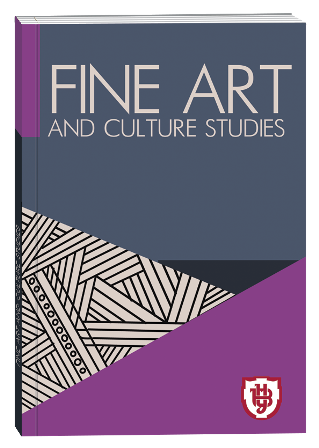PECULIARITIES OF WORK IN A CHORAL COLLECTIVE
DOI:
https://doi.org/10.32782/facs-2025-4-15Keywords:
choral collective, conductor-choirmaster, vocal-choral work, rehearsal process, choral sound, interpretation, choral pedagogy, ensemble performanceAbstract
The article explores the specifics of work in a choral collective, organizational and artistic-performance aspects of the choirmaster’s activity when working with different types of choral groups. The purpose of the study is to determine the peculiarities of working with a choral collective at different stages of preparing a musical piece and to identify key methodological approaches to organizing effective work of a choral group. The research methodology is based on an integrated approach using historical, systematic-analytical, and practicalexperimental methods, which allowed for a comprehensive examination of choral work processes and analysis of traditional and innovative methods of working with a choral collective. The scientific novelty lies in the systematization of modern methods of working with a choral collective and the substantiation of a comprehensive approach to organizing the rehearsal process. For the first time, the psychological aspects of communication between the conductor and members of the choral collective in the context of modern pedagogical practices are analyzed, and their influence on the quality of choral sound is determined. Conclusions. It has been established that effective work in a choral collective requires the choirmaster to harmoniously combine organizational, technical, and artistic-interpretational competencies. It has been revealed that the process of working with a choral collective includes three interconnected stages: organizational-preparatory, technical, and artistic, each with its specifics and methodological features. It has been proven that the quality of choral sound directly depends on the conductor’s ability to create a favorable psychological climate in the collective, establish effective communication with performers, and implement a systematic approach to the rehearsal process.
References
Антонюк В.Г. Вокальна педагогіка (сольний спів): підручник. Київ: ЗАТ «Віпол», 2007. 174 с.
Антонюк В.Г. Постановка голосу: навчальний посібник для студентів вищих музичних навчальних закладів. Київ: Українська ідея, 2010. 68с.
Антонюк В.Г. Українська вокальна школа: етнокультурологічний аспект: монографія. Київ: Українська ідея, 2001. 144с.
Антонюк В.Г. Формування української вокальної школи: історикокультурний аспект: дослідницька праця. Київ: Українська ідея, 2003. 124 с.
Бондар А. Хорове виспівування: основні принципи. Наукові записки Дрогобицького державного педагогічного університету імені Івана Франка. 2017. Вип. 152. С. 71-75.
Бондаренко А.В. Інтелектуально-творчий розвиток студентів у класі хорового диригування : навчально-методичний посібник. Кривий Ріг: КДПУ, 2019. 160 с.
Бондаренко А.В. Основні принципи диригентсько-хорового навчання. Наукові записки. редкол.: В.Ф. Черкасов, В.В. Радул, Н.С. Савченко та ін. Кропивницький, 2017. Вип. 152. С. 141-145.
Бондаренко А.В. Самостійна робота студентів вищих навчальних закладів як важливий елемент диригентсько-хорової підготовки: метод. реком. Кривий Ріг, 2017. 93 с.
Жишкович М. Основи вокально-педагогічних навиків. Методичні поради для студентів вокальних факультетів вищих навчальних закладів культури і мистецтв ІІІ-ІV рівнів акредитації. Львів, 2012. 43 с.
Прядко О.М. Розвиток співацького голосу. Наукові записки Кам’янець-Подільського національного університету ім. Івана Огієнка. 2016. № 8. С. 33-38
Смирнова Т.А. Хорознавство (історія, теорія, методика): навч. посібник. Харків: ХДПУ ім. Г.С. Сковороди, 2010. 180 с.








